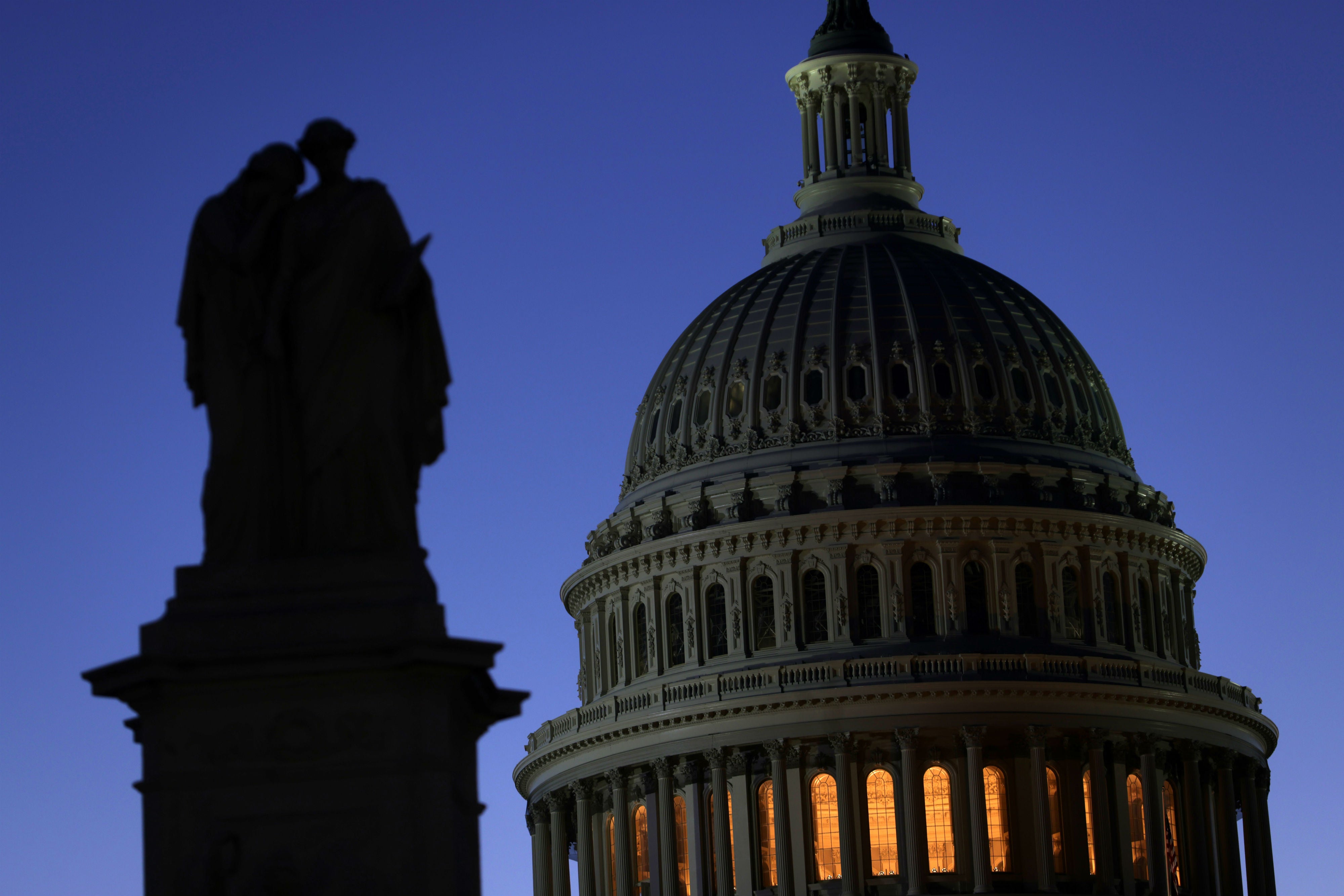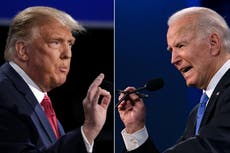Biden was set to lead a blue wave, so how did the 2020 US election end up being such a close race… again?
Whoever emerges victorious, this election ought to be a wake-up call, writes Andrew Buncombe


There’s a veteran conservative talk show host called Rush Limbaugh, who often sounds sexist, racist and xenophobic. Any journalist working in America ought to tune in as frequently as they can.
Four years ago, as an overly confident Hillary Clinton was already thinking about who would make up her cabinet, Mike Pence called into Limbaugh’s show days before election day, to say that despite what pollsters were predicting, the Trump campaign saw a path to victory.
Last week, as Democrats were pointing to a 10-point advantage in the national polls and decent leads in places such as Ohio, Iowa and even Georgia, Limbaugh was busy telling his Trump-loving listeners that the trend lines in a number of key battleground were pointing in the president’s favour, not that of Joe Biden.
And so it was on Tuesday night. As the nation went into election day with Democrats hoping for a “blue wave” and dreaming they were set to win historically red states such as Georgia and Texas, last won by a Democrat in 1976, so those assumed Democratic advantages disappeared – first Iowa, then Texas, Ohio and Georgia. Even Biden’s flip of Arizona may be challenged.
As the situation stands now, Biden leads Trump 248-214 in the electoral college, and with a advantage of 2.6 million in the popular vote – narrower than Clinton had over Trump in 2016. His campaign says it is confident about winning the last two races that are yet to be declared – Michigan and Pennsylvania – while the closeness of the victory in Wisconsin has led to the Trump campaign demanding a full recount.
Jennifer O’Malley Dillon, Biden’s campaign manager, said: “Joe Biden is on track to win this election, and he will be the next president of the United States.”

It may be that the 77-year-old former vice president does emerge as the 46th president of the United States, even though Donald Trump, the 45th, has raised the apparently wild accusations of voter fraud – his claim itself not wild but rather entirely predictable – and will challenge any outcome in the courts.
Amid the doubts and confusion, several things can be said with some certainly.
Firstly, is that despite what Democrats may have hoped after their success in recapturing the House of Representatives in the 2018 midterms, partly on the back of women voters, 2020 does not appear to have produced the “blue wave” some were hoping for.
“It’s been remarkable to see the stability not only between the 2016 and 2020 presidential map, but also in congressional races and Senate races up and down,” said Rachel Maddow, a liberal anchor on MSNBC. “On either side, you’re seeing not only no wave, it’s like a pond where you drop in a rock and there’s no ripples.”
The other thing to reflect on is the endurance and persistence of Donald Trump and his supporters. In 2016, Democrats made the mistake of not considering him a credible challenger to Clinton.
In 2020, the mistake was to assume that with more than 230,000 people in the US dead from the coronavirus and at least 9.3 million infected, it would be enough to campaign against Trump, rather than for something new and original. It was equally wrong to assume that Trump’s huge rallies across the country where few people wore face masks and plenty of people no doubt became infected, would not solidify and energise his base.
Biden’s decision to livestream his campaign from his basement may have been medically wise and socially responsible, but it was not going to have the impact of Trump’s, especially given how little actual enthusiasm there has been for Biden himself, rather than an alternative to Trump.
On Monday night, such was the number of people who turned out to see Trump’s final rally in Grand Rapids, Michigan, The Independent was obliged to ditch its rental car on a traffic-gridlocked back road and run the last mile to the venue to get there before the security deadline imposed on the press by the Secret Service.
And it is also good to be reminded of the large and different coalition of supporters Trump has. We may assume he appeals to white supremacist men, and he does. But for a huge range of reasons, he also appeals to women, to the elderly, to some Hispanics, to some African Americans, to the very wealthy and the very poor, and to the very religious.
By contrast, last Saturday at a rally Biden held on an island in the Detroit River, with Stevie Wonder and Barack Obama, it was noticeable how many people went back to their cars or else left, after Obama finished speaking and Biden began talking.
The reason the Trump campaign continues to play tapes of Biden speaking flat and sounding confused is not simply to be offensive, but because they are effective. They are effective because they at least partly point to a broad truth, that Biden is 77 and very often looks (and sounds) each of those years.
A final aside, is that it appears Democrats once again failed to work to secure the support of the Latino and Latina vote. Bernie Sanders learnt this lesson in 2016 and worked to correct it.
Such was his support among Latinos that he easily won the Democratic primary in Nevada, even as senior Democrat Julian Castro pointed to the need not to take the support of the diverse Latino community for granted.
In Florida in particular, the Biden campaign was very slow with its outreach to Latinos, something on which Alexandria Ocasio-Cortez reflected.
“I won’t comment much on tonight’s results as they are evolving and ongoing, but I will say we’ve been sounding the alarm about Dem vulnerabilities w/ Latinos for a long, long time,” she tweeted. “There is a strategy and a path, but the necessary effort simply hasn’t been put in.”
Join our commenting forum
Join thought-provoking conversations, follow other Independent readers and see their replies
Comments


Bookmark popover
Removed from bookmarks